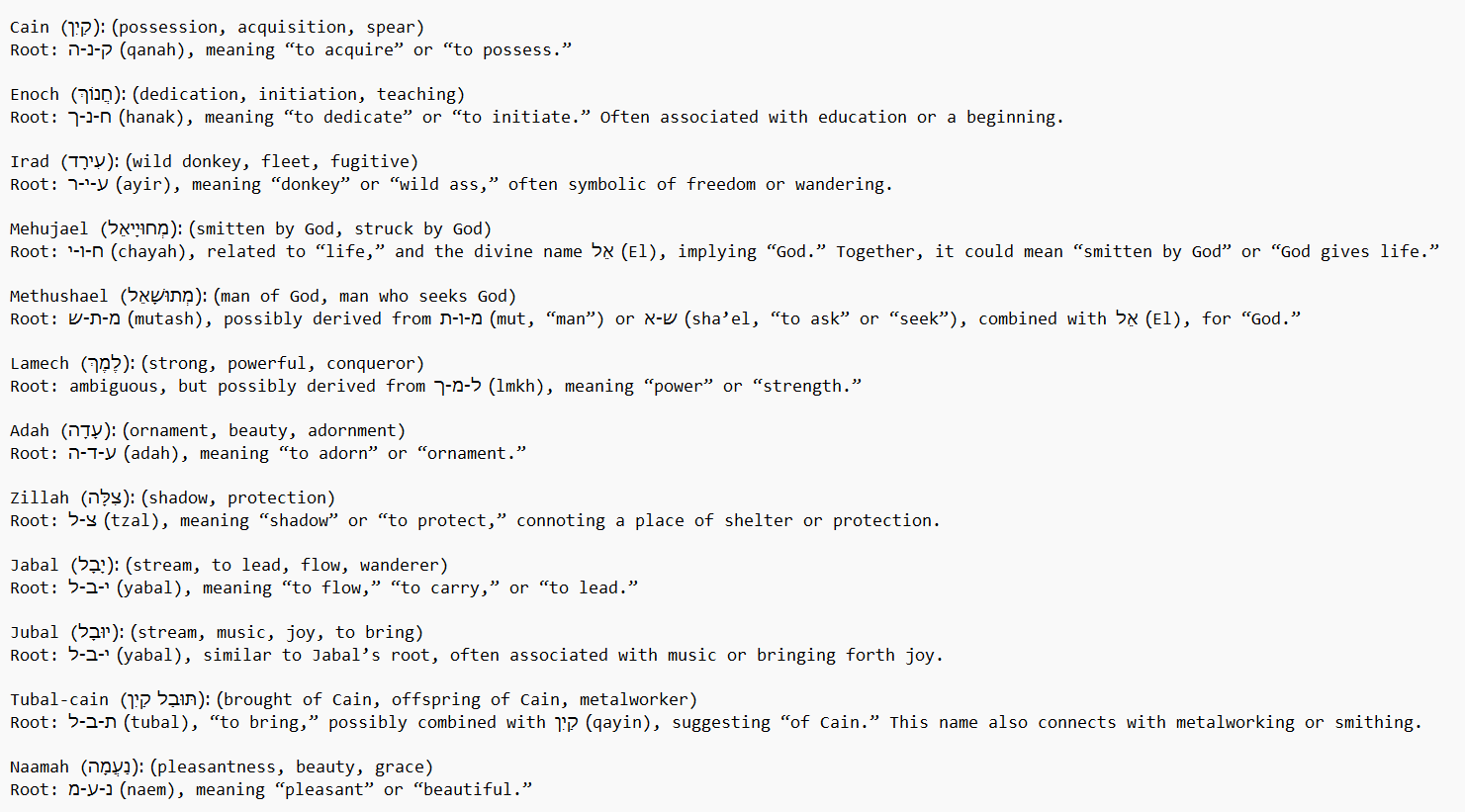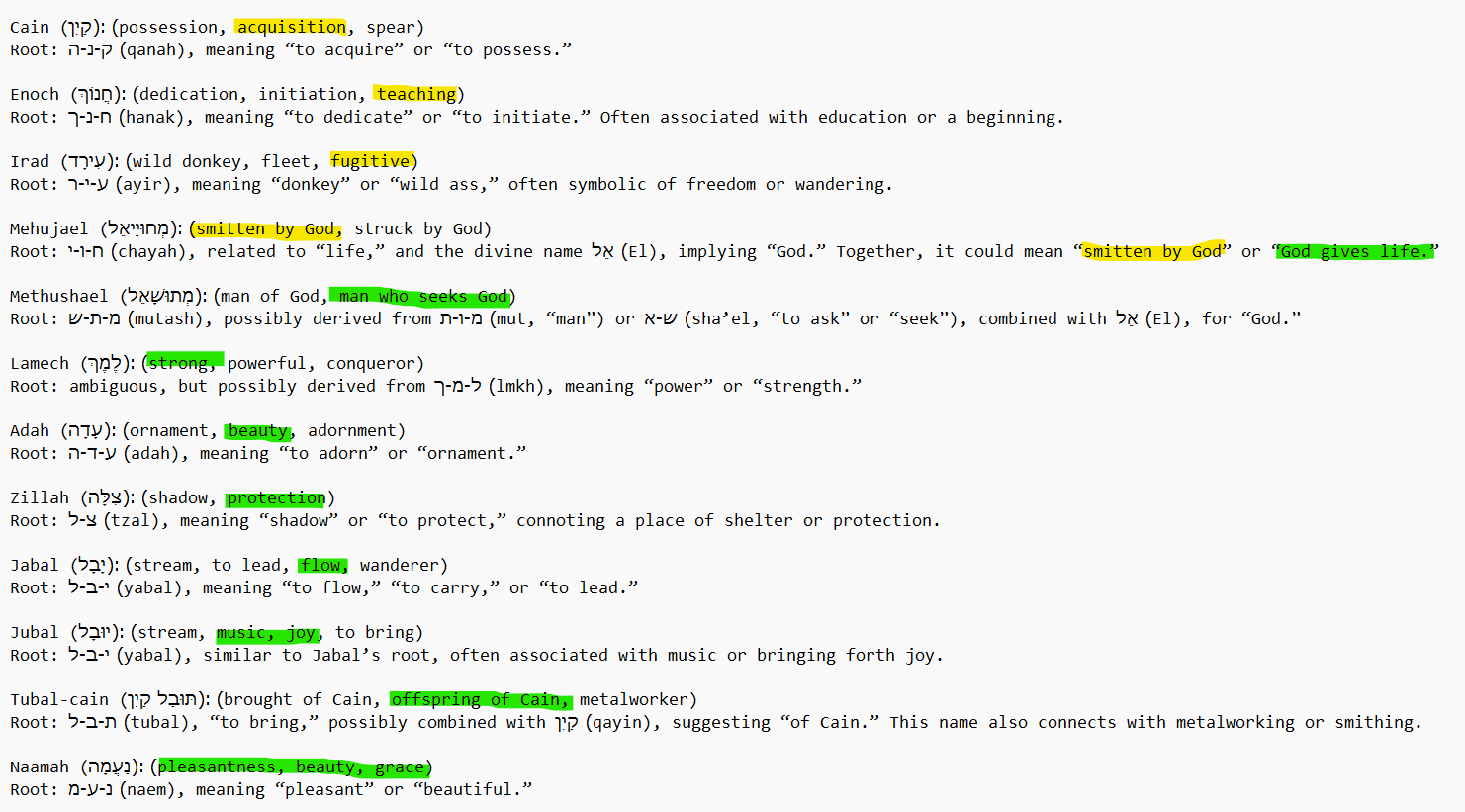Genesis 1-3 gives us separations: Heaven/Earth, Waters above/below, Land/Water, Birds/Fish, Animals/Humans, Man/Woman, 2 Trees, Good/Evil, Humanity/Eden, etc., etc.
Genesis 4 does the same, but in an entirely new way. But we are given clues throughout the narrative.
We are shown two brothers: Cain/Abel. Two sacrifices: works/faith.
In Cain’s line, we have Lamech who has two wives. Adah has two sons: Jabal and Jubal. Zillah has two children: Tubal-Cain and Na’amah.
It’s like we are being shown a river that has split into two streams. Paths.
Interestingly, we also are introduced to words that have TWO meanings that are often opposites of one another.
SIN and SIN-OFFERING
Mehujael means both “ALIVE in God” and “KILLED by God”
And then the chapter ends with an EXTREMELY strange word: halel.
Seth also had a son, and he named him Enosh.
At that time people began to call on the name of the Lord.
Genesis 4:26 (NIV)
Most of our bibles end Genesis 4 with this sentence:
“At that time men began to CALL upon the name of the Lord.” (implying worship)
But some render it this way:
“At that time men began to PROFANE the name of the Lord.” (implying the OPPOSITE of worship)
If you look at the concordance for this word, it’s very odd. Most meanings of this word basically equate to blaspheme, or piercing/wounding (interesting), or (oddly) playing the flute.
But also “to begin.”
1. to profane, defile, pollute, desecrate, begin
2. to wound (fatally), bore through, pierce, bore
3. to play the flute or pipe
H2490: חָלַל (ḥālal)
So translators tried to use context to figure this out.
The problem is that context does not help. It can either mean that people began to worship, or began to take God’s name in vain…
or… both?
I believe some of these words are actually intended to be seen BOTH ways; how you read it depends on what God is showing you.
Consider the central message of the sacrifice God found unacceptable: the fruits of Cain’s labor from the ground is cursed (Genesis 3). His best efforts. His accomplishments. His works.
And God says “I don’t want your works.”
Depending on who you are, this has two meanings.
If you are rooted in works, doing everything to EARN God’s favor, you’ll die trying. God won’t accept it. The words kill you.
If you are seeking God’s heart, you’ll know God is telling you that it’s not the works, but your very heart He desires. The words give you life.
So in Genesis 4, we see God separate something again, this time splitting our works from God’s work, and we also get a glimpse into what the consequence of works vs faith does with this character’s name Mehujael, which can mean “alive in God” or “killed by God.”
So at the end, when the text says that “men began to [something] the name of the Lord,” I suspect that it’s both. Some called out, pleading to God. Some profaned the name of God.
In some ways, that’s our own souls, isn’t it? We do both. We, too, ascribe God to our works.
But Genesis 4 is also about choices after our sin. In Gen 3, we hid and covered ourselves in fig leaves. In Genesis 4, we either lean into God, or try to cover our shame with our works. We live this choice.
But God accepts only one of them. He will not accept the other.


